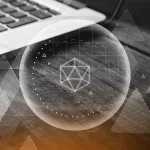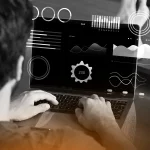Your cart is currently empty!
DAO Governance Risks: Mitigation and Future Security
Last updated on

In this article, we’ll delve into the evolving landscape of Decentralized Autonomous Organizations (DAOs), exploring their immense potential while shedding light on the critical aspects of DAO governance and the inherent risks they face. We’ll also provide practical strategies and insights for mitigating these risks and ensuring the security and longevity of DAOs, empowering both seasoned participants and newcomers to navigate this complex yet promising frontier effectively.
Understanding the Evolving Landscape of DAO Governance
DAOs represent a paradigm shift in organizational structures, leveraging blockchain technology to create transparent, community-driven entities. Unlike traditional hierarchical organizations, DAOs operate through smart contracts and collective decision-making, offering unprecedented levels of decentralization and autonomy. This innovative structure enables a wide range of applications, from DeFi protocols to social clubs and investment groups. Effective DAO governance is at the heart of their operation.
- What Defines a DAO?
- DAOs are internet-native organizations collectively owned and managed by their members. Decisions are made through proposals and voting on a blockchain, eliminating the need for central authority.
- Key Tip: Look for transparent and accessible on-chain voting records when evaluating a DAO’s health.
- The Promise of Decentralization:
- Enhanced transparency, reduced censorship, and direct participant involvement are core benefits that DAO governance aims to deliver.
Key Governance Risks in DAOs
Despite their revolutionary potential, DAOs are not without their challenges, particularly concerning governance risks. These risks can threaten the stability, security, and even the existence of a DAO if not properly addressed. Understanding these vulnerabilities is the first first step in mitigating them.
- Voter Apathy and Centralization of Power:
- A common challenge where only a small percentage of token holders actively participate in voting, potentially leading to a concentration of power in the hands of a few large holders. This directly impacts the decentralized nature of DAO governance.
- Key Tip: Always assess the voter participation rate and distribution of voting power before joining or investing in a DAO.
- Smart Contract Vulnerabilities:
- Since DAOs operate on smart contracts, bugs or exploits in the code can lead to significant financial losses or even the complete collapse of the organization. This is a critical security concern for any DAO governance model.
- Lack of Legal Clarity and Regulatory Uncertainty:
- The evolving legal status of DAOs in various jurisdictions creates uncertainty and potential legal liabilities for participants. This ambiguity can hinder the effectiveness of DAO governance in the traditional legal system.
- Coordination Failures and Decision Gridlock:
- Reaching consensus among a large, distributed group can be slow and inefficient, leading to missed opportunities or an inability to respond quickly to critical issues.
- Sybil Attacks and Malicious Actors:
- The risk of bad actors acquiring enough tokens to manipulate voting outcomes or propose malicious actions remains a significant governance risk.
Strategies for Mitigating Governance Risks
To ensure the long-term viability and security of DAOs, proactive strategies for mitigating governance risks are essential. These approaches focus on strengthening the underlying mechanisms and fostering robust community participation.
- Enhanced Voting Mechanisms:
- Delegated Voting: Allowing members to delegate their voting power to trusted representatives (e.g., in liquid democracy models).
- Quadratic Voting: A method where the cost of votes increases quadratically with the number of votes, reducing the power of large holders.
- Weighted Voting based on Contribution: Rewarding active participation and positive contributions with more voting power over time.
- Key Tip: Explore DAOs that implement these advanced voting mechanisms to ensure more equitable and active participation.
- Robust Smart Contract Audits and Formal Verification:
- Regular, independent audits by reputable security firms are paramount. Formal verification (mathematically proving the correctness of code) offers an even higher level of security.
- Key Tip: Always prioritize DAOs that transparently share their audit reports and have active bug bounty programs to enhance their DAO governance security.
- Clear Governance Frameworks and Community Guidelines:
- Establishing well-defined constitutions, proposal submission processes, and conflict resolution mechanisms can prevent disputes and streamline decision-making in DAO governance.
- Incentivizing Participation:
- Rewarding active voters and contributors with token incentives, NFTs, or recognition can combat voter apathy and encourage broader engagement.
- Table: Incentive Mechanisms for DAO Participation
| Incentive Mechanism | Description | Benefit for DAO Governance |
|---|---|---|
| Token Rewards | Airdropping or distributing native tokens to active voters/contributors. | Increases participation, aligns incentives. |
| Non-Fungible Tokens (NFTs) | Granting unique NFTs to long-term contributors or voters. | Builds community identity, recognizes loyalty. |
| Reputation Systems | Implementing on-chain reputation scores for consistent participation. | Fosters trust, identifies key contributors. |
| Sub-DAO Structure | Creating smaller, focused sub-DAOs with delegated responsibilities. | Improves efficiency, reduces gridlock. |
- Progressive Decentralization:
- Gradually distributing control and ownership over time, ensuring the core team maintains some initial oversight to address unforeseen issues before full decentralization.
Ensuring Security in the DAO Ecosystem
Beyond governance, the overall security of the DAO ecosystem is paramount. This involves protecting against external threats and ensuring the integrity of the underlying blockchain infrastructure.
- Multi-Sig Wallets for Treasuries:
- Requiring multiple approvals for transactions from the DAO treasury significantly reduces the risk of single points of failure or malicious attacks.
- Regular Security Audits for Integrated Protocols:
- Any external protocols or smart contracts that the DAO interacts with should also undergo rigorous security assessments.
- Community Vigilance and Reporting Mechanisms:
- Empowering the community to identify and report potential vulnerabilities or suspicious activities quickly.
- DAO Security Layers Explained: The security of a DAO ecosystem can be understood as having several key layers:
- Smart Contract Security: This fundamental layer relies on:
- Regular Audits: Independent security reviews of the smart contract code.
- Formal Verification: Mathematical proof of the correctness of the code.
- Governance Mechanism Security: This layer focuses on preventing manipulation of the decision-making process through:
- Robust Voting: Implementing advanced voting systems that are resistant to attacks.
- Anti-Sybil Measures: Strategies to prevent a single entity from controlling multiple identities to sway votes.
- Treasury Security: Protecting the DAO’s financial assets is crucial and typically involves:
- Multi-Sig Wallets: Requiring multiple private keys to authorize transactions.
- Insurance Protocols: Decentralized insurance solutions to cover potential losses.
- Smart Contract Security: This fundamental layer relies on:
- Insurance Protocols:
- Exploring decentralized insurance solutions that can cover potential losses due to smart contract exploits or other unforeseen events.
Conclusion
DAOs represent an exciting and transformative force in the future of organization and governance. While they offer unparalleled transparency and community participation, addressing inherent governance risks and ensuring robust security are non-negotiable for their long-term success. By implementing advanced voting mechanisms, conducting thorough security audits, fostering active community engagement, and adopting a proactive approach to risk management, DAOs can overcome their challenges and truly realize their decentralized potential. The journey ahead for DAOs is one of continuous evolution, and by focusing on mitigating risks and enhancing security, we can collectively build a more resilient and equitable decentralized future.




Leave a Reply